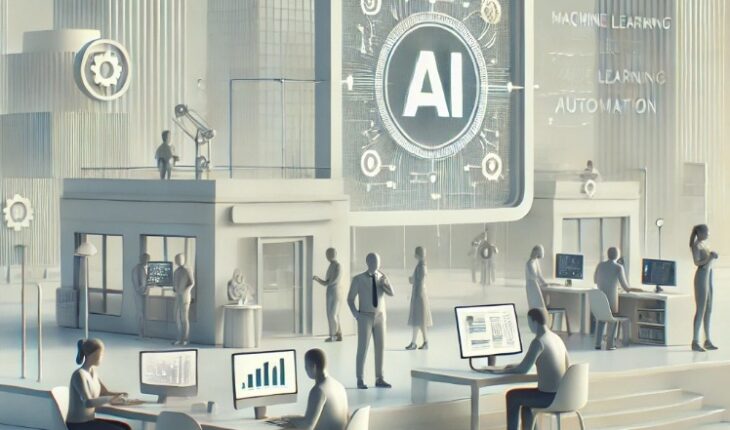The most significant risk isn’t AI itself but the speed at which it transforms the job market. If India fails to upskill its workforce in time, the job gap will widen, and the unskilled workforce may struggle with underemployment

Artificial Intelligence (AI) is reshaping industries worldwide, and India is no exception. As automation takes over repetitive tasks in data entry, customer support, and manufacturing, concerns about mass job displacement are growing. Studies suggest that AI could replace millions of jobs globally, including in India. However, history shows that tech-driven disruptions also bring new opportunities. The challenge is not just job loss but how quickly the workforce can adapt to new roles in an AI-driven economy.
Routine jobs are the first to go. AI-powered chatbots and automation tools replace human roles in customer service, finance, and administrative sectors. Factories are increasingly using robotics, reducing the need for low-skill labor. AI is also impacting traditional jobs like accounting, legal research, and journalism.
But there’s another side to this story. AI isn’t just eliminating jobs; it’s also creating them. Data science, AI programming, machine learning, and cybersecurity are in high demand. Digital marketing, AI-driven healthcare, and remote tech support are booming. India’s IT industry is expanding its AI-based services, generating new employment opportunities for those with relevant skills.
For professionals, the lesson is clear – adapt or risk redundancy. Upskilling is the key to surviving this shift. Learning AI-related skills like Python, data analytics, or cloud computing can open doors. Even in non-tech sectors, AI literacy is becoming essential. Soft skills – creative thinking, problem-solving, and emotional intelligence, remain valuable because AI cannot replicate human insight and empathy.
New Opportunities: India’s diversity presents unique job opportunities. AI applications in agriculture, healthcare, and education can transform rural and urban economies. Smart farming using AI-powered drones, telemedicine platforms, and AI-driven e-learning are growing fields where human involvement remains crucial. The gig economy is another safety net.
Platforms like Upwork, Fiverr, and Indian startups offer freelance work opportunities in content creation, AI consulting, and remote services. Indian youth, known for their adaptability, can leverage these platforms while transitioning into AI-integrated careers. The key is staying ahead of AI rather than competing with it. For instance, rather than fighting automation in finance, professionals can learn AI-driven financial modeling.
Government’s Role: While individuals must take charge of their learning, the government has a critical role in smoothing this transition. Large-scale AI-focused skill development programs are needed. Expanding the Skill India initiative to include AI training in tier-2 and tier-3 cities can prevent a digital divide. Public-private partnerships with tech giants like Google, Microsoft, and Infosys can ensure AI boot camps reach rural areas.
Education reforms are also urgent. Schools must introduce AI and coding from an early stage, replacing outdated rote-learning models with hands-on problem-solving approaches. Job creation should focus on industries where AI enhances rather than replaces. Renewable energy, smart agriculture, and AI-driven healthcare need skilled professionals. The government can incentivize startups that generate employment in these sectors.
Time to Act: A proactive approach is the only way forward. Indian professionals must embrace lifelong learning, diversify their skill sets, and stay updated with industry trends. With strategic adaptation, India can turn AI’s disruption into a launchpad for innovation and job creation. The AI revolution is here. Whether it leads to crisis or opportunity depends on how quickly India acts. The future of work is not about man versus machine—it’s about man with machine. The choice is clear: evolve or be left behind.
The writer is a senior journalist and columnist. Views expressed are personal.
Email: narvijayindia@gmail.com






